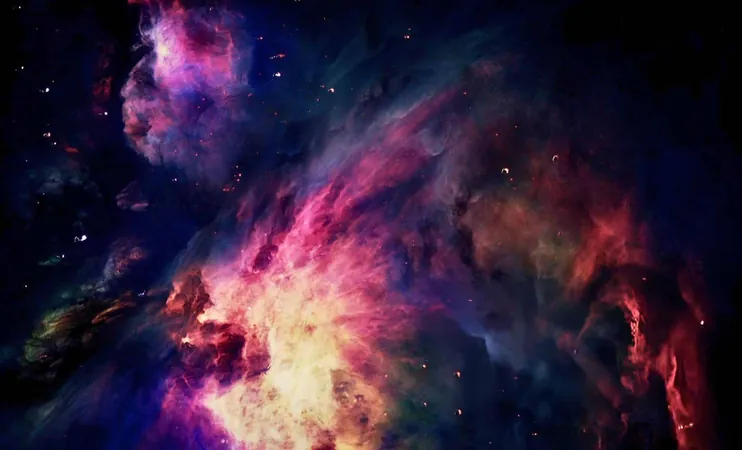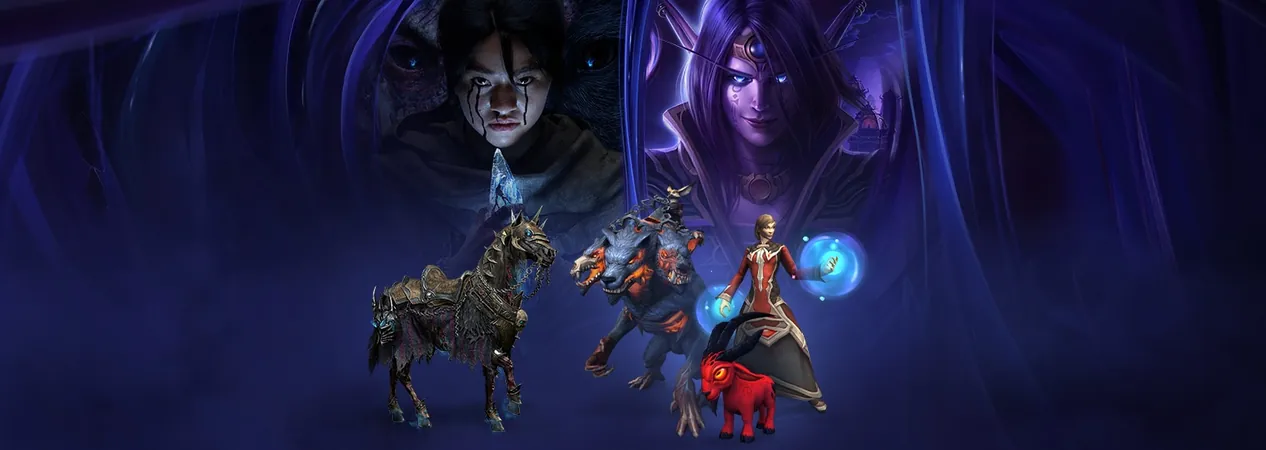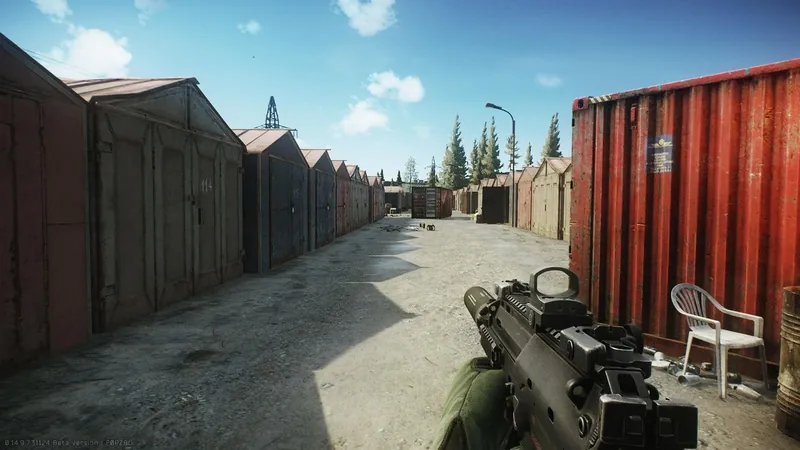
Shocking Revelation: Is Dark Energy Nothing but an Illusion?
2024-12-21
Author: Jessica Wong
A Paradigm Shift in Cosmology
The concept of dark energy emerged in the 1990s when astronomers were astounded to find that distant Type Ia supernovae were much farther away than predicted. This astonishing discovery signaled that rather than decelerating, the universe's expansion was speeding up. To explain this, researchers adopted the Lambda Cold Dark Matter (ΛCDM) model—a framework that became the gold standard in cosmology.
However, recent discrepancies known as the Hubble tension have raised serious questions about this model. The Hubble tension arises from the conflicting measurements of the universe's expansion rate today compared to the rates inferred from the early universe, leading researchers to explore alternative explanations. The Pantheon+ collaboration, which examined data from over 1,500 supernovae, found inconsistencies that lend credence to Professor Wiltshire's alternative "timescape model."
The Timescape Revolution: Gravity’s Secret Influence
The timescape model presents a fascinating perspective—one that asserts the flow of time is influenced differently by the gravitational forces of matter. Here’s the compelling premise of the model: - **Denser Galactic Regions:** In areas with a high concentration of matter and gravity, time flows more slowly. - **Vast Cosmic Voids:** In contrast, large empty spaces in the universe allow time to flow more quickly.
This variance in time flow leads to a "grumpled" fabric of space-time, causing light to be stretched as it traverses these uneven landscapes. Thus, the perceived accelerated expansion might simply be a result of varying rates of time passage across different regions of the universe.
Critical Insights and Future Prospects
While the timescape model aligns with Einstein’s theory of general relativity, it departs from the ΛCDM framework in significant ways. Professor Wiltshire asserts that this model could potentially resolve pivotal cosmic anomalies, including the perplexing Hubble tension.
Initial tests of the timescape model showcased a slightly better fit to observational data compared to the ΛCDM model back in 2017. Recent data from supernova light curves, particularly sourced from the Pantheon+ collaboration, now reportedly offers "very strong evidence" supporting Wiltshire's hypothesis.
Looking ahead, upcoming space missions such as NASA's Nancy Grace Roman Space Telescope and the European Space Agency's Euclid satellite promise to revolutionize our understanding of the universe. They will gather unprecedented data that could help determine the viability of dark energy and distinguish between the established ΛCDM model and the innovative timescape theory.
What if We're All Wrong?
If the timescape model gains support, it would radically alter our understanding of cosmology. The notion that the apparent acceleration of the universe is a natural byproduct of gravitational influences could utterly eliminate the need for dark energy. Such a shift could not only resolve current disputes like the Hubble tension but also would fundamentally redefine our concepts of time, space, and the architecture of the cosmos.
As Professor Wiltshire proposes, this new lens could "resolve some of the most pressing anomalies in modern cosmology." The scientific community eagerly awaits the findings from upcoming missions, which may confirm or dismiss this provocative challenge to one of the most established theories in science. Prepare for a potential paradigm shift—could everything you thought you knew about the universe be on the brink of transformation? Stay tuned, as the next wave of cosmic exploration is just around the corner!





 Brasil (PT)
Brasil (PT)
 Canada (EN)
Canada (EN)
 Chile (ES)
Chile (ES)
 España (ES)
España (ES)
 France (FR)
France (FR)
 Hong Kong (EN)
Hong Kong (EN)
 Italia (IT)
Italia (IT)
 日本 (JA)
日本 (JA)
 Magyarország (HU)
Magyarország (HU)
 Norge (NO)
Norge (NO)
 Polska (PL)
Polska (PL)
 Schweiz (DE)
Schweiz (DE)
 Singapore (EN)
Singapore (EN)
 Sverige (SV)
Sverige (SV)
 Suomi (FI)
Suomi (FI)
 Türkiye (TR)
Türkiye (TR)